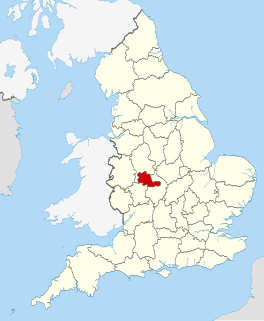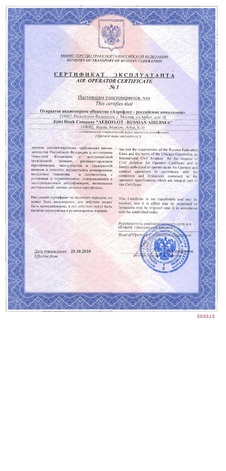
A bus is a road vehicle designed to carry many passengers. Buses can have a capacity as high as 300 passengers. The most common type of bus is the single-deck rigid bus, with larger loads carried by double-decker and articulated buses, and smaller loads carried by midibuses and minibuses; coaches are used for longer-distance services. Many types of buses, such as city transit buses and inter-city coaches, charge a fare. Other types, such as elementary or secondary school buses or shuttle buses within a post-secondary education campus do not charge a fare. In many jurisdictions, bus drivers require a special licence above and beyond a regular driver's licence.
National Rail (NR) in the United Kingdom is the trading name licensed for use by the Rail Delivery Group, an unincorporated association whose membership consists of the passenger train operating companies (TOCs) of England, Scotland, and Wales. The TOCs run the passenger services previously provided by the British Railways Board, from 1965 using the brand name British Rail. Northern Ireland, which is bordered by the Republic of Ireland, has a different system. National Rail services share a ticketing structure and inter-availability that generally do not extend to services which were not part of British Rail. The name and the accompanying double arrow symbol are trademarks of the Secretary of State for Transport.

Deutsche Bahn AG is a German railway company. Headquartered in Berlin, it is a private joint-stock company (AG), with the Federal Republic of Germany being its single shareholder.
The Rail Delivery Group (RDG) is the British rail industry membership body that brings together passenger and freight rail companies, Network Rail and High Speed 2.
Metlink was the marketing body and umbrella brand for public train, tram and bus transport operators in Melbourne, Australia. On 2 April 2012, the operations of Metlink were transferred to the newly created public transport planning and management authority, Public Transport Victoria.

Transport for West Midlands (TfWM) is the public body responsible for co-ordinating transport services in the West Midlands metropolitan county in England. It is an executive body of the West Midlands Combined Authority (WMCA), with bus franchising and highway management powers similar to Transport for London. TfWM's policies and strategy are set by the Transport Delivery Committee of the WMCA.

An electronic ticket is the digital ticket equivalent of a paper ticket. The term is most commonly associated with airline issued tickets. Electronic ticketing for urban or rail public transport is usually referred to as travel card or transit pass. It is also used in ticketing in the entertainment industry.

An intercity bus service or intercity coach service, also called a long-distance, express, over-the-road, commercial, long-haul, or highway bus or coach service, is a public transport service using coaches to carry passengers significant distances between different cities, towns, or other populated areas. Unlike a transit bus service, which has frequent stops throughout a city or town, an intercity bus service generally has a single stop at one location in or near a city, and travels long distances without stopping at all. Intercity bus services may be operated by government agencies or private industry, for profit and not for profit. Intercity coach travel can serve areas or countries with no train services, or may be set up to compete with trains by providing a more flexible or cheaper alternative.
ABTA is a UK travel trade association for tour operators and travel agents.

Vehicle and Operator Services Agency (VOSA) was an executive agency granted trading fund status in the United Kingdom sponsored by the Department for Transport of the United Kingdom Government.
ITSO Ltd is a non-profit distributing technical, standardisation and interoperability membership organisation with objectives to:

An air operator's certificate (AOC) is the approval granted by a national aviation authority (NAA) to an aircraft operator to allow it to use aircraft for commercial purposes. This requires the operator to have personnel, assets and system in place to ensure the safety of its employees and the general public. The certificate will list the aircraft types and registrations to be used, for what purpose and in what area - specific airports or geographic region.

Passenger rail franchising in Great Britain is the system of contracting out the operation of the passenger services on the railways of Great Britain to private companies through a system of franchising.

Buses play a major role in the public transport of the United Kingdom, as well as seeing extensive private use. While rail transport has increased over the past twenty years due to road congestion, the same does not apply to buses, which have generally been used less, apart from in London where their use has increased significantly. Bus transport is heavily subsidised, with subsidy accounting for around 45 per cent of operator revenue, especially in London. In 2014/15, there were 5.2 billion bus journeys in the UK, 2.4 billion of which were in London.

The United Kingdom has a number of intercity coach services.

Traveline is a public transport route planner service provided by a partnership between local authorities and transport operators in the UK to provide impartial and comprehensive information about public transport which has operated since 2000. It prepares comprehensive public transport data for the UK and provides a number of regional public transport journey planners.
Reolian Public Transport Co. (Reolian), was one of the three Bus Public Transport Operators of Macau along with Transmac and TCM.

Essex Thameside is a railway franchise for the provision of passenger services on the London, Tilbury and Southend Railway in east London and south Essex. It was formed on 26 May 1996, following the privatisation of British Rail and the franchise was originally called London, Tilbury and Southend. The only train operating company on the line to date has been c2c. Following a number of temporary extensions caused by problems with the rail franchising system, c2c was awarded a new 15-year franchise which commenced on 9 November 2014.
Build UK is a representative organisation for the UK construction industry, formed by the September 2015 merger of the UK Contractors Group (UKCG) and the National Specialist Contractors Council (NSCC). By bringing together clients, main contractors, trade associations representing over 11,500 specialist contractors, and other organisations committed to industry collaboration, Build UK represents in excess of 40% of UK construction.

Contact Centre Cymru is a bilingual Contact Centre, based in Penrhyndeudraeth, North Wales. Owned and managed as a business unit of PTI Cymru Ltd, they provide a Contact Centre service to a range of businesses across Wales and the UK, including Traveline Cymru., Bwcabus, First Cymru, Severn Trent Water, National Rail Enquiries and Arriva Trains Wales.













